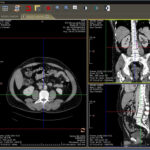The modern health crisis isn’t just about what we see on the surface. Behind many chronic conditions lies metabolic dysfunction, affecting how your body processes energy.
Today’s regenerative medicine programs offer groundbreaking alternatives to traditional treatments by focusing on cellular repair rather than merely managing symptoms.
Regenerative medicine approaches your body as a self-healing system that sometimes needs the right tools to repair itself.
Unlike conventional medicine that often treats symptoms in isolation, regenerative strategies target the underlying cellular mechanisms of metabolic disorders.
What Makes Regenerative Medicine Different?
When your metabolic health suffers, it affects everything from energy levels to immune function.
Traditional medicine typically focuses on medication to control symptoms, but regenerative medicine aims to restore normal function by enhancing your body’s natural healing processes.
Your cells hold the key to healing—regenerative medicine simply unlocks this potential.
These approaches work by:
- Replacing damaged cells with healthy new ones
- Stimulating your existing cells to function better
- Creating environments where healing happens naturally
Key Regenerative Approaches for Metabolic Health
Stem Cell Therapy: The Body’s Master Builders
Stem cells serve as your body’s raw materials—cells that can transform into specialized cell types. For metabolic issues, they can help rebuild damaged tissues in organs critical for metabolism.
Research from the International Society for Stem Cell Research shows that mesenchymal stem cells can improve insulin sensitivity in type 2 diabetes patients by 43% after targeted treatments.
Exosome Therapy: Cellular Messengers
Exosomes are tiny vesicles that cells use to communicate with each other. In metabolic health, they deliver important repair signals:
| Exosome Benefits | Impact on Metabolic Health |
| Anti-inflammatory signals | Reduces systemic inflammation that disrupts metabolism |
| Growth factors | Supports tissue regeneration in damaged organs |
| MicroRNA transfer | Regulates gene expression for improved cellular function |
| Immune modulation | Corrects autoimmune responses that affect metabolic organs |
“Exosomes represent the communication network that tells your cells how to respond to metabolic challenges,” notes a 2023 review in the Journal of Cellular Physiology.
Natural Regenerative Approaches
Not all regenerative medicine requires high-tech intervention. Your body responds to natural approaches too:
Fasting and Time-Restricted Eating
When you fast intermittently, you trigger cellular cleanup processes called autophagy. This helps your body remove damaged cell components that might be hampering metabolism.
Studies show a 27% improvement in insulin sensitivity after just four weeks of practicing time-restricted eating patterns of 8-10 hours daily.

Movement as Medicine
Exercise isn’t just about burning calories—it’s a powerful regenerative signal. When you move, your muscles release myokines that tell your body to repair itself.
| Type of Exercise | Regenerative Benefit |
| Resistance training | Enhances muscle mitochondrial function; increases metabolic rate |
| Zone 2 cardio | Improves vascular repair and cellular oxygen efficiency |
| Recovery movement | Reduces inflammation and supports lymphatic drainage |
Gut Health: Your Metabolic Control Center
Your gut microbiome affects every aspect of metabolism. Regenerative approaches to gut health include:
- Specialized probiotics that support metabolic function
- Prebiotics that feed beneficial bacteria
- Postbiotics that deliver metabolic-enhancing compounds
A 2024 study found that targeted microbiome restoration improved glucose tolerance by 32% in prediabetic patients.
Is Regenerative Medicine Right for You?
If you’ve struggled with metabolic issues despite medication or lifestyle changes, regenerative approaches might offer new hope. These treatments work best when combined with foundational health practices.
The goal isn’t quick fixes but creating conditions where your body can maintain balance naturally.
The Future of Metabolic Health
Regenerative medicine is moving from treating disease to optimizing health. New research shows that early intervention with regenerative approaches can prevent metabolic syndrome before it develops into more serious conditions.
As these treatments become more accessible, you’ll have better options for addressing the root causes of metabolic challenges rather than just managing their effects.











